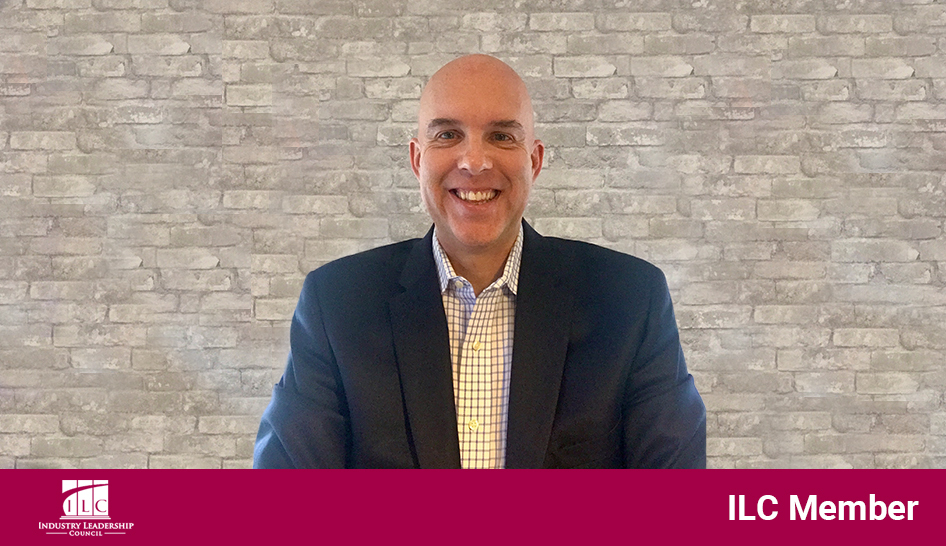The Lessons in Fitness Leadership series highlights IHRSA’s industry leaders and thanks them for their continued commitment to growing, promoting, and protecting the health club industry. By sharing their business expertise, we hope that you will get to know them, what they've learned along the way, and how they view leadership.
Want to Succeed in the Fitness Industry? Ignore the Status Quo
Every facet of the industry can have an impact on someone’s life. You “have the opportunity to make a career of helping people help themselves,” says David Van Daff of Fusionetics.

David Van Daff
Executive Vice President, Fitness
Fusionetics
David Van Daff has been an Industry Leadership Council (ILC) member for the past five years. Having had the opportunity to lobby on Capitol Hill as an ILC member, he believes that passing PHIT will be important in eliminating barriers to physical activity.
What is the most fulfilling part of being a business leader in the fitness industry?
The fitness industry affords you the opportunity to make a career of helping people help themselves. That is truly rewarding and fulfilling on many different levels.
Helping guide people toward achieving their health and fitness goals is by far the most gratifying aspect of a career in fitness.
Over the past 20 years, I have had a variety of roles within varying layers of this industry—from health clubs and personal training, to education and certification, to services and tools that help people move, perform, and feel better. Every unique company and position I’ve had has had a similar objective of helping people improve their health, fitness and ultimately, their lives.
Also satisfying is the fact that we work in an industry that can never be replaced. There will always be a great need for physical activity and corrective exercise. Advanced technology can and should be utilized to assist in getting the masses moving more, correctly and safely. However, it cannot replace the act of exercise [or] the human interaction necessary to motivate, coach, and inspire.
If you were able to go back in time, what is one piece of leadership advice you would have given your younger self about working in the fitness industry?
Every aspect of the fitness industry is continuously evolving. Nothing is ever stagnant.
From a business perspective, most every facet of how we market, sell, operate, educate, and deliver services has changed dramatically.
In addition, a consistent flow of new, impactful research is progressively transforming the equipment, tools, service offerings, and programming delivered today. What would have been considered unrealistic and somewhat outlandish 20 years ago, is now looked at as “mainstream.”
To be successful in this industry, you must never accept the “status quo” and must always be looking for new or better ways and means that ultimately lead to improving people’s lives through health and fitness.
What prompted you to join the Industry Leadership Council (ILC)?
From the onset of my career, I learned that everything IHRSA promotes, supports, and protects is always done in the best interest of the entire fitness industry. IHRSA’s tireless work to support clubs and influence membership growth ultimately impacts our business in a very positive manner.
I’ve been a part of the ILC for the past few years and consider my involvement an important civic duty to this industry. Everything the ILC supports, the PHIT Act and beyond, is a real “no brainer” in terms of support and promotion. At a high level, the objective is the removal of barriers, potential and real, to increase physical activity for the greater population. However, like every good idea that requires government backing, it needs voices, loud voices! That’s why more industry businesses should step up and support the ILC!
Our clients are fitness facilities and professionals who are either IHRSA members and supporters or should be! Fusionetics and IHRSA serve similar roles in that we both provide support to the fitness industry that in turn positively impacts its members and clients.
What has been your most memorable experience as part of the ILC?
I’ve been fortunate enough to take part in a few ILC Capitol Hill lobbying events over the years. At one particular event, I happened to run into Sen. John McCain in a hallway.
We spoke at length about the ILC, the PHIT Act, and hockey—yes, hockey! It turns out that Sen. McCain was a big hockey fan. He took the next 20 minutes to talk to me about everything hockey from his favorite teams and players to his outlook and predictions on the NHL playoffs.
Needless to say, this is an encounter I will never forget!
The Personal Health Investment Today Act, or PHIT, is legislation that would make access to physical activity more affordable. How will passage of this bill help America get fit?
It’s common-sense legislation. Anything that can positively stimulate widespread wellness is a good thing and of critical, national importance. PHIT eliminates excuse barriers and influences impactful and consistent fitness and nutrition behaviors.
The obesity crisis has been at a critical state since I became a part of the industry over 20 years ago. Much has been done during this time but there’s much more to do in order to make a visible effect. Passage of the PHIT bill is what’s needed now to make this noticeable change that will impact millions. Passing the PHIT bill will be a celebrated milestone for decades to come.
Founded 20 years ago by a group of concerned industry leaders, the Industry Leadership Council exists so that IHRSA has the funds to stop or amend legislation and regulations that would be harmful to club operations, as well as to have the resources necessary to take advantage of opportunities—like PHIT and financial incentives to exercise—that would grow the industry.

Emily Gluck is IHRSA's Executive Assistant. On average, her job consists of scheduling, supporting the executive team, and planning events, while the best part of her job is getting to work with a great team on a daily basis. If Emily is out of the office you can typically find her kayaking, hiking in a national park, or rafting on a remote river—ideally, she likes to get out of cell phone range.